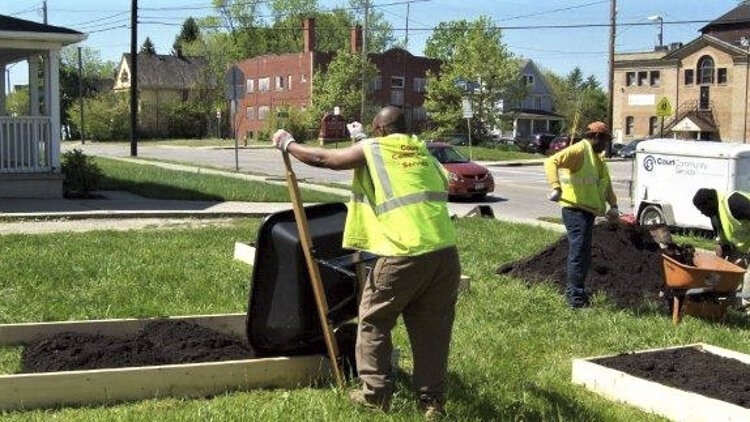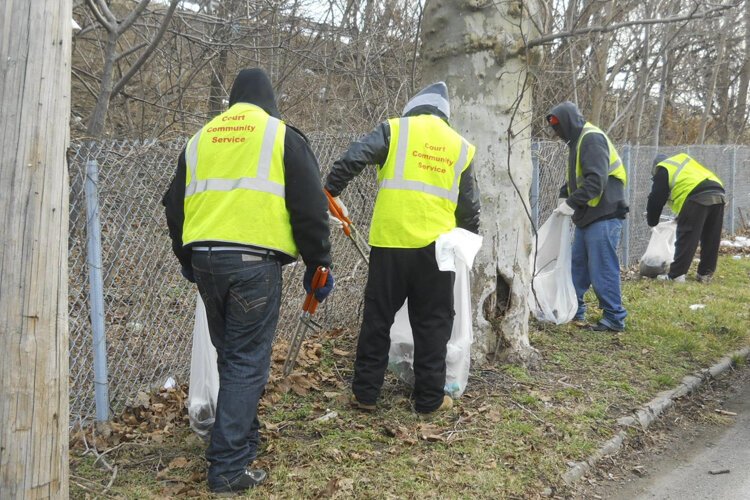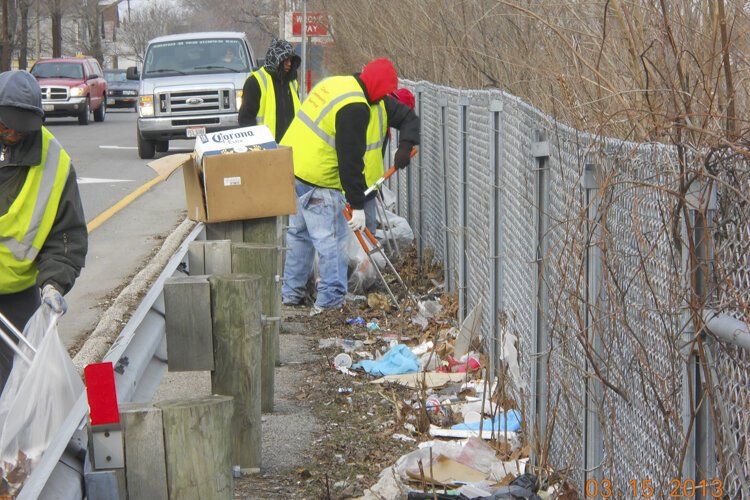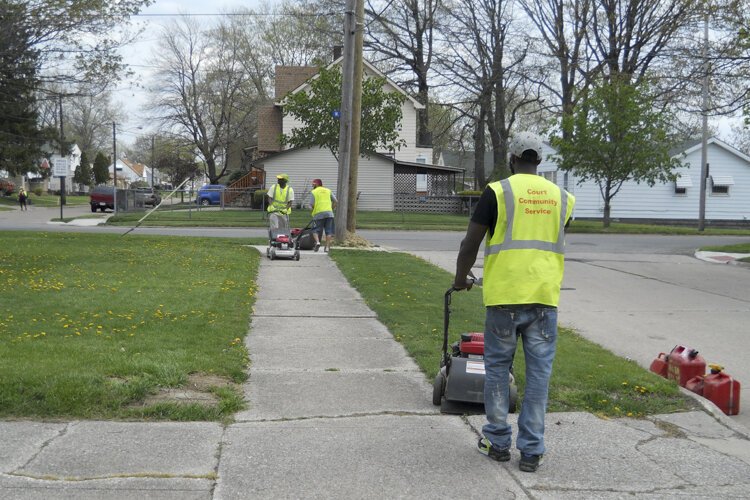Cleaning up Cleveland: Organizations work together to rid neighborhood of illegal dumping
St. Casimir Church volunteer John Niedzialek was tired of people dumping trash and debris around the church property and in the in the St. Clair Superior neighborhood. He remembers growing up in the neighborhood at a time when he would get in trouble for throwing a gum wrapper on the ground. Even though it was a poor neighborhood, residents took pride in the area. Today, he says littering and dumping are regular problems.

"Frankly, I do not have much patience or sympathy for people that open their car windows and throw out bottles, fast food bags, lottery tickets, cans, and other trash on the land our Lord has asked us to be stewards of,” Niedzialek says.
So, Niedzialek contacted Ward 7 Cleveland city councilperson Basheer Jones about the problem. Jones recommended Niedzialek call Famicos Foundation, the community development corporation (CDC) that serves the St. Clair Superior, Hough, Glenville, and North Collinwood neighborhoods.
Carolyn Dawson, housing development specialist with Famicos, and Paul Klodor, executive director of Community Court Service (CCS) immediately responded with help.
Dawson says Niedzialek’s call was all-too familiar. “We get calls about dumping—and in some areas where dumping is prevalent, it never ends,” she says. “Our initial step is to keep these areas clean and free of debris, and we rely on Community Court Service when we’re called up.”
Dawson says they are working with nonprofit CCS for the areas around both St. Casimir and Wilson School, as well as with the Cuyahoga Land Bank on vacant lots and Cleveland Clinic on vacant properties they plan to acquire.
Since March 12, each Friday the crews travel a grid between East 82nd Street and Ansel Road, from Pulaski and Kosciuszko Avenues. The crews then travel down St. Casimir Way to Martin Luther King, Jr. Boulevard.
CCS arranges community service work for adult offenders referred from area municipal courts as an alternative sentencing option. Klodor says everyone benefits from the program when it comes to trash pickup.
“People are providing community service hours in lieu of a [jail] sentence of instead of paying court costs and fees,” he explains. “People can contribute in a positive way instead of serving time—they’re contributing to the community. It creates a better outcome for us all.”
Klodor reports that in one year, CCS has agreements with more than 250 nonprofit organizations in Northeast Ohio. In addition to trash pickups, he says the organization works with the Department of Aging to provide lawncare and snow removal services to the city's senior residents.
“We are very proud to have such a diverse [group of organizations],” he says. “We get 5,000 to 6,000 referrals in a typical year and we provide 100,000 hours of service work with agencies and crews throughout the county.”
Klodor says in 2019, CCS crews collected 51,000 bags of trash, 18,000 tires, and 8,500 cubic yards of debris that couldn’t fit in the bags—amounting to 58,000 hours of work by supervised work crews.
Klodor adds that a lot of the dumping sites they see are hit regularly, and the residents are usually not the people doing it. “Unfortunately, Cleveland has been hit hard by dumping,” he says. “This isn’t someone who dumped a tire over a back fence—it’s someone who pulled a truck up at night and dumped the contents and left. It’s not something random, it’s a terrible problem and the East side of Cleveland is getting hit hard.”
But Niedzialek also says he’s spent a lot of time scraping used ketchup wrappers off the streets, as well as picking up fast food bags and other garbage throw out the windows of passing cars. “It seems like it almost takes more effort to open up your [car] window and toss out your separate ketchup packets and fast food then it would to go to the gas station and throw the whole thing away. I’m still trying to find a winning lotto ticket.”
But. He says things are looking a lot better around the neighborhood these days. “The area looks so much better,” he says. “On the weekend, instead of cleaning up, I’m just mopping up the streets. I’m really grateful for that.”




